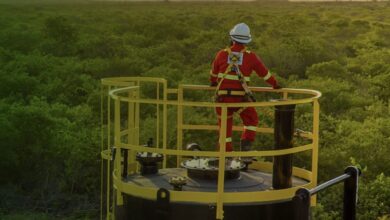Texas Railroad Commission announces permitting requirements for onsite recycling of wastewater
The Texas Railroad Commission has announced permitting requirements for onsite recycling of treated domestic wastewater and treated wastewater from mobile drinking water systems. This process will help ensure recycled water is properly treated for specific permitted uses.
The Railroad Commission will use the minor permit process under the Commission’s Statewide Rule 8 (Water Protection) to consider applications for permits authorizing operators to beneficially recycle treated domestic wastewater and waste streams from mobile drinking water systems at drill sites.
A Commission minor permit will be required for surface application, such as dust suppression for drill pads or roads and for controlled (non-atomized) irrigation, for treated fluids. A Commission minor permit will also be required for downhole uses of treated domestic wastewater.
No Commission permit is required if wastewater from a mobile drinking water treatment system is used downhole as make-up water for drilling fluid after surface casing for a well has been set through the base of usable quality water. Also, no Commission permit is required for recycling mobile drinking wastewater for use as make-up water for cement and for make-up water for hydraulic fracturing fluid.
The Railroad Commission has jurisdiction over the onsite treatment and management of domestic wastewater generated at oil and gas drill sites. The RRC also has jurisdiction over waste streams generated from mobile drinking water treatment systems located at and resulting from use exclusively at drill sites.
The Texas Commission on Environmental Quality has jurisdiction over the treatment of water that will be used for drinking water, other potable uses, and potable delivery. TCEQ also has jurisdiction over mobile potable water treatment units operated at drill sites, such as mobile drinking water treatment systems and over the transportation of domestic waste and wastewater. Solids accumulated during the treatment of domestic sewage at a drill site must be removed to an authorized disposal facility by a TCEQ-registered sludge transporter before a sewage treatment system is relocated.
In no case may waste streams be discharged or allowed to enter any watercourses or drainage ways, including drainage ditches, dry creek beds, flowing creeks, rivers or any other surface water.




